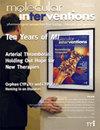Patriotic Science
引用次数: 0
Abstract
During the onset of the COVID-19 pandemic (a global highly contagious respiratory infection) in early 2020, Sri Lanka witnessed an upsurge in indigenous discourses. These ranged from claims by western medical doctors that pirit pæn (water blessed during Buddhist chanting) has scientifically proven health benefits to endorsements of a divinely inspired syrup. These discourses gained wide publicity and received state endorsement with the health minister consuming the syrup on national television. But by early 2021 these discourses had lost their lustre and the health minister contracted COVID. These “alternative” discourses nearly derailed the country’s vaccination program. By 2021, many who backed these ideas had lost credibility and the state and public began to place faith in vaccination. The sudden public visibility of these indigenous discourses and their swift decline speaks to the complex politics of indigeneity. This essay uses the Sri Lankan case to argue that decoloniality, which has become a global theoretical trend, in some instances is insufficiently self-reflexive of how its conceptual premises are appropriated by nativist discourses. The fetishization of the indigenous can have devastating consequences. When Sri Lankan western-trained doctors spoke on behalf of a romanticized indigeneity they were appropriating the authority of indigenous medicine, which had historically fashioned itself as a “scientifically” valid hybrid alternative. When variants of decolonial thinking promote a radically “non-modern” ontology and epistemology, a similar process of romanticization occurs. I conclude with a call for a critical practice that recognizes how the so-called “modern” and “traditional” are more apparent than real and are deeply implicated in each other. I also argue for the importance of recognizing the significance of an agonistic critical orientation that is not resistant to knowledge based on its putative “western” origins.爱国主义的科学
在2020年初2019冠状病毒病大流行(一种全球高度传染性呼吸道感染)爆发期间,斯里兰卡出现了土著话语的激增。其中包括西方医生声称的精神pæn(佛教诵经时加持的水)已被科学证明对健康有益,以及一种神圣的糖浆的代言。这些言论得到了广泛的宣传,并得到了国家的认可,卫生部长在国家电视台上食用了这种糖浆。但到2021年初,这些言论失去了光泽,卫生部长感染了COVID。这些“另类”言论几乎破坏了该国的疫苗接种计划。到2021年,许多支持这些想法的人失去了信誉,国家和公众开始信任疫苗接种。这些土著话语的突然公开露面及其迅速衰落说明了土著的复杂政治。本文以斯里兰卡为例,论证已经成为一种全球理论趋势的非殖民化,在某些情况下,其概念前提如何被本土主义话语挪用的自我反思性不足。对土著的崇拜可能会带来毁灭性的后果。当斯里兰卡受过西方训练的医生代表浪漫化的土著发言时,他们是在盗用土著医学的权威,而土著医学历来将自己塑造成一种“科学”有效的混合替代疗法。当非殖民化思想的变体提倡一种彻底的“非现代”本体论和认识论时,就会发生类似的浪漫化过程。最后,我呼吁一种批判性的实践,认识到所谓的“现代”和“传统”是如何比真实的更明显,并且彼此之间有着深刻的联系。我还认为,认识到不抵制基于假定的“西方”起源的知识的对抗式批判取向的重要性是很重要的。
本文章由计算机程序翻译,如有差异,请以英文原文为准。
求助全文
约1分钟内获得全文
求助全文

 求助内容:
求助内容: 应助结果提醒方式:
应助结果提醒方式:


